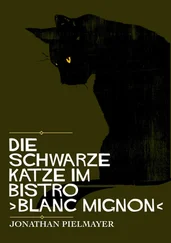“Is this”, she said, “a movie idea?”
He nodded. “I guess it’s that,” he said. “I mean, I’m standing here looking at this thing — the incredible phoniness of it, the way this guy is held up as a great artist, a revolutionary — the emptiness, the pretension — and I just want to take this guy Osbourne, I want to take a scalpel and cut his throat down to his belly and pull him open and show him to everyone, I want to fuck him up the ass, I want to rip his head off and shit into it, I want to pop his lying eyes out with a spoon and skullfuck him. So yes,” he said, “I guess you could say that’s a movie idea.”
Dex wanted to go back home and call his agent. On the way, he kept turning back to stare at the painted water tower from different perspectives, to hold it in his mind’s eye, knowing he wouldn’t be able to see it from the windows of their apartment. Molly mentioned, as they waited for the light on the Bowery, that she had just read somewhere that Osbourne was due to appear at NYU, to pick up an award and give a speech, some time later that spring. Dex’s face lit up at this news. “We’ll go, then,” he said. “You can get us tickets. That’s excellent, that’s ideal, that’s why I need you,” and he took her face between his hands, grinning broadly, in a loving way, though a little harder than necessary.
JOHN FELT AS if he were carrying some sort of explosive secret with him on the trip from Palladio to Richmond, Richmond to La Guardia, La Guardia to the St Moritz. It was just the two of them, himself and Mal, and Mal didn’t say much. No one would be likely to recognize his face, of course; and John, like some employee of the Witness Protection Program, kept restating to himself the importance of acting normally. They sat in their adjoining rooms at the St Moritz for three hours, even ordering separate room service dinners. At Osbourne’s direction, John had turned down a dinner invitation from the Tisch School’s board of trustees; he needed more time, he said, to go over his remarks. He had seemed agitated all day — not worried exactly, but suffering from a kind of surfeit of physical and nervous energy. Now, when John muted the TV in his room, he could hear Osbourne rehearsing his speech on the other side of the wall. John ate his salmon en papillote from a tray and looked out the window at Central Park, feeling strangely subdued. At six forty-five he put on his suit jacket, went out into the hallway, and knocked on Osbourne’s door.
In the tiny anteroom just behind the auditorium stage they could hear the swelling murmur of the crowd. The event, the dean said proudly, was sold out. Balding, in a black suit which he picked at so unfamiliarly it might as well still have had the price tag on it, the dean sat in a folding chair, smiling affably, trying to keep his knees from touching Osbourne’s or John’s. He did ask Osbourne, hopefully, if he would like to hear his introduction in advance, just to make sure there were no inaccuracies, nothing objectionable, unfortunately there was no written text to show him, it was all in the dean’s head. Osbourne smiled and said he was sure it would be fine.
It was fine; John and Mal stood in the wings and listened to it. The dean went on a bit long, working in Tocqueville and McLuhan and Jacques Ellul and Sonic Youth, but it was all quite thoughtful. Then Osbourne walked out to the podium, clapping the dean on the shoulder as they passed, and waited for the applause to die down.
It didn’t die down for quite some time.
“Let me tell you something about myself,” Osbourne began. “What I do is not advertising. Advertising is all about moving product. Or it’s all about envy. It’s all about sex, about lust, about instant gratification. Advertising is the beast. Well, I came here tonight, the first public appearance I’ve made in about seven years, because I have news to bring to you. The beast is dead. I have killed it.”
John couldn’t see Osbourne’s face. A shifting took place throughout the hall, making a rolling sound like something you might hear at night if you lived near the sea; then gradually, thrillingly, it turned into more applause.
“The good news is that advertising has left behind the husk of its form — as mighty an apparatus as the world has ever seen — and as with any form the question of content is wide open. Limited only by the imagination of artists. And yes, I said artists, because the idea that the commercial world may function only as a place where real artists, quote unquote, come to whore themselves — this is an idea upon which everyone agrees in advance, a ready-made idea, an established idea. Hence, a dead idea.
“It comes joined at the hip to another dead idea, namely that art which reaches the greatest possible audience is by definition bad art, because badness, by which is meant simplicity, must be the means of reaching that broad audience. This, to speak plainly, is bullshit. The work that we produce at our new institution, Palladio — great work, important work, from an artistic standpoint alone — what should we do, put it in a drawer, take it out and show it to our friends when they come over? No. As an artist I believe that I have something to say, and if I have something to say I use the greatest means of expression available to me. This seems obvious, to me. And yet we are vilified for it. The reason our art reaches millions and millions of people is because that’s the nature of the form . No matter how good or bad it is, how simple or how obscure, it will enter the consciousness of many, many millions of people. All the elitist defenders of the notion of high art — well, you’d think this would be a cause for them to flock to advertising, say hosannas in praise of it. ‘What a wonderful thing is advertising. A haven for great artists, where they don’t have to struggle, where they can say what they please with a built-in audience of millions.’ You don’t need me to tell you that this isn’t happening. The great thinkers of the academy haven’t figured it out. The business community hasn’t figured it out.
“I have figured it out.”
Laughter: for the first time in his life, John experienced the intoxicating effect produced by the laughter of a living, breathing, present audience. He took a step and tried to look out across the stage, to see some of the faces of those who had gathered to hear Osbourne’s address. But the stage lights were right in his face; he couldn’t make out anything past about the second row.
“I worked for years in the ad world, all through the seventies and eighties. I rose to the top of that profession. And I’ll tell you, the more successful and respectable I became, the more I was treated like a star, told I was an innovator, the more disgusted I became with myself. I knew that what I was doing was really just a kind of endless theme-and-variations, and that theme was the status quo. There was nothing new about it. Believe me, there was a period of a few years there where I considered just getting out of the ad business entirely. And yet, even when things were at their worst, I knew somehow, in my heart of hearts as they say, that advertising wasn’t failing me. I was failing it. There was an enormous, an unprecedented sort of potential there, if only I could figure out a way to get at it.”
Osbourne paused to sip from a glass of water. The hall was silent, and John, without realizing it, was holding his breath along with them until his boss started speaking again.
“I was also an art collector for many years,” Mal said. “Not out of a profit motive: I mean, the motive was for the artists to profit. I loved art, contemporary art, and if I was in a position to help subsidize these struggling young artists, to help them financially and to help them find a wider audience, then that’s what I wanted to do. But what happened was, the two sides of my life began to come together, philosophically, in a way I hadn’t anticipated. The art I saw was increasingly … well, I don’t want to say bad, it wasn’t bad. It was frustrated . It was hobbled by a sense of its own irrelevance, by a sense of the impossibility of mattering, of doing anything new. They were working for each other, really. It became totally, irremediably self-referential, and the basic paradox was that in order to gain acceptance as an artist, you had to make sure that you were working with precisely that small, knowing, insular, incestuous, ever-shrinking audience in mind. No wonder the artists were frustrated! To do what they were born to do, they had to enter a virtual monkhood, aesthetically speaking. They had to forgo any possibility of really mattering.
Читать дальше












